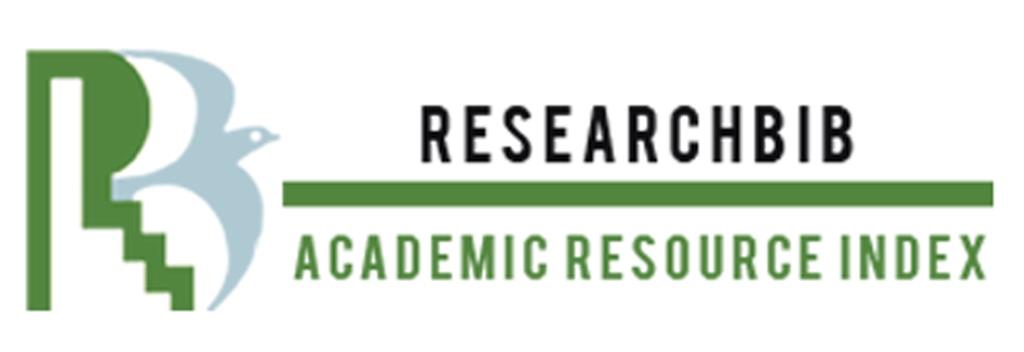DISINFORMATION AND ITS IMPACT ON PUBLIC AND POLITICAL LIFE
Abstrakti
The 21st century has turned out to be the age of a powerful onslaught of disinformation, however, disinformation dates back to BC and is getting stronger from time to time in every century.
Lataukset
Lähdeviitteet
„ჟურნალისტიკა, ყალბი ამბები და დეზინფორმაცია“, ჟურნალისტიკის სწავლებისა და ტრენინგების სახელმძღვანელო, გაერთიანებული ერების განათლების, მეცნიერებისა და კულტურის ორგანიზაცია, სერიიდან ჟურნალისტური განათლების შესახებ, მედიის განვითარების ფონდი, თბილისი, 2021. / "Journalism, fake news and disinformation", Journalism teaching and training manual, United Nations Educational, Scientific and Cultural Organization, from the series on Journalism Education, Media Development Fund, Tbilisi, 2021.
ლიანა მაკრაიანი, ყალბი ამბები და დეზინფორმაცია: საფრთხეები, ბროლის გზები, ეთიკური და სამართლებრივი ასპექტები, თბილისი, 5 ნოემბერი, 2021. / Liana McRyan, Fake News and Disinformation: Dangers, Crystal Paths, Ethical and Legal Aspects, Tbilisi, November 5, 2021
შაოშვილი ია, თურქია ნინო , ეკონომიკური პოლიტიკის კვლევის ცენტრი, 2021. / Shaoshvili Ia, Turkia Nino, Economic Policy Research Center, 2021.
დეზინფორმაციის მოკლე ისტორია - ძველი ეგვიპტიდან პოსტ-სიმართლის საზოგადოებამდე, რეალპოლიტიკა, 18 ნოემბერი 2021 წ. / A Brief History of Disinformation - From Ancient Egypt to the Post-Truth Society, Realpolitika, 18 November 2021.
მაღრაძე ნინო, ბლოგი, როგორ გავარღვიო საინფორმაციო ბუშტი, ვიპოვო სანდო მედია და გადავამოწმო ინფორმაცია, 12 სექტემბერი, 2022. / Maghradze Nino, Blog, How to blow the news bubble, find reliable media and verify information, September 12, 2022.
ბლოგი, ფეიკნიუსი - დეზინფორმაცია ციფრულ ეპოქაში, 25 ოქტომბერი, 2021 წ. / Blog, Fake News - Misinformation in the Digital Age, October 25, 2021.
მედიაწიგნიერება, ბლოგი,ფეიკნიუსი - დეზინფორმაცია ციფრულ ეპოქაში, 25 ოქტომბერი, 2021 წ. / Media Literacy, Blog, Fake News - Misinformation in the Digital Age, October 25, 2021.
პიტერ პომერანტევი, აგორას ინსტიტუტი, ჯონ ჰოპკინსი, უნივერსიტეტის და ლონდონის ეკონომიკის სკოლა. / Peter Pomerantev, Agora Institute, Johns Hopkins University and London School of Economics.
Carme Colomina, Hector Sanchez Margalef, Richard Youngs – The impact of disinformation on democratic process and human rigts in the world, European Parliamnet 653, 635 – April.
Kalina Bontcheva and Julie Posetti (eds.), Balancing Act: Countering Digital Disinformation While Respecting Freedom of Expression, UNESCO Broadband Commission Report, September 2020.
Jana Laura Egelhofer, Ming Boyer, Sophie Lecheler, Loes Aaldering, Journal of communication, Effects on perceptions of media and politicians, Volume 72, issue 6, December 2022.
Disinformation and democracy: A O&A with Scott Ruston, Published online By Madison Arnold June 26, 2020.
niversity of Wisconson-Madison, April 9, 2021.
Political Disinformation and Behavior: Fake News and Motivated Reasoning Anna Elisabetta Galeotti, notizie di politeia, September 11, 2020.
Carey, Benedict, ‘How Fiction Becomes Facts on Social Media’. The New York Times, October 20, 2017.
Ghosh Dipayan and Ben Scott. ‘The Technologies Behiend Precisin Propaganda on the internet’. New America, Jenuary 2018.
Cyber Threats to Canada’s Democratic Process. Communications Security Establishment, June 16, 2017.
Dorfman, Matt, ‘Why Rational People Buy into Conspiracy Theorie’. New York Times, May 21, 2013.
Green, Joshua, and Sasha Issenberg, ‘Inside the Trump Bunker, With Days to go’. Bloomberg, October 27, 2016.
Madrigal, Alexis.’Wat Facebook Did American Democracy’. The Atlantic, October 12, 2017.
Kozinets, Robert. ‘How social media fires people’s passens and builds extremist divisions’. The conversation, November 13, 2017.
Fitch, Georgia. ‘The Educational Value of News’. The State, December 1995.
Stephan Lewandowsky, Werner G.K. Stritzke, Klaus Oberauer, Michael Morales. Memory for Fact, Fiction, and misinformation. Psychological Science, Vol 16, Issue 3, March 1, 2005.
Lotan, Gilad. ‘Fake News is Not the Only Problem’. Data &Society: Points, November 22, 2016.
Fazio, Lisa. ‘Unbelievable news? Read it again and you might think it’s true’. The Conversation, December 5, 2016.
Carey, Benedict, ‘How Fiction Becomes Facts on Social Media’. The New York Times, October 20, 2017.
Lotan, Gilad. ‘Fake News is not the only Problem’. Data & Society. Points, November 22, 2016
















